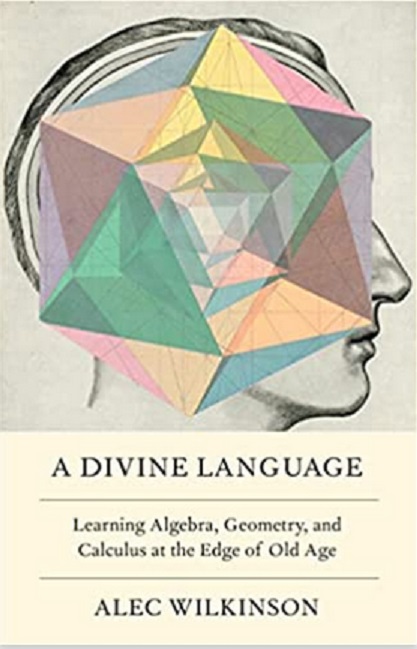Dear Commons Community,
New York Attorney General Letitia James filed a lawsuit yesterday against Donald Trump for padding his net worth and habitually misleading banks and others about the value of his assets like golf courses, hotels and his Mar-a-Lago estate. She dubbed his behavior as “The Art of the Steal.”
The lawsuit, filed in state court in Manhattan, is the culmination of the James’ three-year civil investigation into Trump and the Trump Organization. Trump’s three eldest children, Donald Jr., Ivanka and Eric Trump, were also named as defendants, along with two longtime company executives. As reported by the Associated Press.
In its 222 pages, the suit struck at the core of what made Trump famous, taking a blacklight to the image of wealth and opulence he’s embraced throughout his career — first as a real estate developer, then as a reality TV host on “The Apprentice” and later as president.
It details dozens of instances of alleged fraud, many involving claims made on annual financial statements that Trump would give to banks, business associates and financial magazines as proof of his riches as he sought loans and deals.
For example, according to the lawsuit, Trump claimed his Trump Tower apartment — a three-story penthouse replete with gold-plated fixtures — was nearly three times its actual size and valued the property at $327 million. No apartment in New York City has ever sold for close to that amount, James said.
Trump applied similar fuzzy math to his Mar-a-Lago estate in Palm Beach, Florida, the lawsuit alleged, by valuing the private club and residence as high as $739 million — more than 10 times a more reasonable estimate of its worth. Trump’s figure is based on the idea that the property could be developed for residential use, but deed terms prohibit that.
“This investigation revealed that Donald Trump engaged in years of illegal conduct to inflate his net worth, to deceive banks and the people of the great state of New York,” James said at a news conference.
“Claiming you have money that you do not have does not amount to the art of the deal. It’s the art of the steal,” she said, referring to the title of Trump’s 1987 memoir, “The Art of the Deal.”
James said the investigation also uncovered evidence of potential criminal violations, including insurance fraud and bank fraud, but that her office was referring those findings to outside authorities for further investigation.
Trump, in a post to his Truth Social platform, decried the lawsuit as “Another Witch Hunt” and denounced James as “a fraud who campaigned on a ‘get Trump’ platform.”
Trump’s lawyer, Alina Habba, said the allegations are “meritless” and that the lawsuit “is neither focused on the facts nor the law — rather, it is solely focused on advancing the Attorney General’s political agenda.”
In the lawsuit, James asked the court to ban Trump and his three eldest children from ever again running a company based in the state.
She is also seeking payment of at least $250 million, which she said was the estimated worth of benefits derived from the alleged fraud. And she wants to bar Trump and the Trump Organization from entering into commercial real estate acquisitions for five years, among other sanctions.
James’ lawsuit comes amid a whirlwind of unprecedented legal challenges for a former president, including an FBI investigation into Trump’s handling of classified records and inquiries into his efforts to overturn the 2020 election.
While James’ lawsuit is being pursued in civil court, Manhattan District Attorney Alvin Bragg has been working with James’ office on a parallel criminal investigation.
Trump cited fear of prosecution in August when he refused to answer questions in a deposition with James, invoking his Fifth Amendment protection against self-incrimination more than 400 times.
The odds of a criminal prosecution have been seen as falling in recent months after Bragg allowed a grand jury to disband without bringing charges. Bragg said again Wednesday, though, that the criminal investigation was “active and ongoing.”
A criminal prosecution would have a far higher burden of proof than a civil lawsuit. And in a criminal case, prosecutors would have to prove that Trump intended to break the law, something not necessarily required in a civil case.
“Generally in criminal cases you have to prove intent. In civil cases, just negligence or intentional misrepresentation give rise to liability,” said Neama Rahmani, a former federal prosecutor in San Diego who now practices law at a Los Angeles firm.
The U.S. attorney’s office in Manhattan said it was aware of James’ referral of potential criminal violations, but otherwise declined comment. The Internal Revenue Service’s criminal investigation division said it “doesn’t confirm the existence of investigations until court documents are publicly available.”
The Trump Organization is set to go on trial in October in a criminal case alleging that it schemed to give untaxed perks to senior executives, including its longtime finance chief Allen Weisselberg, who alone took more than $1.7 million in extras.
Weisselberg, 75, pleaded guilty Aug. 18. His plea agreement requires him to testify at the company’s trial before he starts a five-month jail sentence. If convicted, the Trump Organization could face a fine of double the amount of unpaid taxes.
Weisselberg and another Trump Organization executive, Jeffrey McConney, were also named as defendants in James’ lawsuit.
At the same time, the FBI is continuing to investigate Trump’s storage of sensitive government documents at his Mar-a-Lago estate in Florida, and a special grand jury in Georgia is investigating whether Trump and others attempted to influence state election officials.
All of the legal drama is playing out ahead of the November midterm elections, where Republicans are trying to win control of one or both houses of Congress.
Trump’s previous refusal to answer questions in testimony could be held against him if a lawsuit ever reaches a jury. In civil cases, courts are allowed to draw negative inference from such Fifth Amendment pleadings.
“If Trump wanted to argue that some accounting decision was harmless instead of malicious, he might have already passed up the opportunity when he decided to stay silent,” said Will Thomas, an assistant professor of business law at the University of Michigan.
In a previous clash, James oversaw the closure of Trump’s charity for alleging misusing its assets to resolve business disputes and boost his run for the White House. A judge ordered Trump to pay $2 million to an array of charities to settle the matter.
James, who campaigned for office as a Trump critic and watchdog, started scrutinizing his business practices in March 2019 after his former personal lawyer Michael Cohen testified to Congress that Trump exaggerated his wealth on financial statements provided to Deutsche Bank while trying to obtain financing to buy the NFL’s Buffalo Bills.
This lawsuit is long overdue. Donald Trump has been known as a scam artist in New York City for years. Former Mayor Michael Bloomberg stated it best in 2016 on national television during the Democratic Convention:
“I’m a New Yorker, and I know a con when I see one…Throughout his career, Trump has left behind a well-documented record of bankruptcies, thousands of lawsuits, angry shareholders and contractors who feel cheated, and disillusioned customers who feel ripped off. Trump says he wants to run the nation like he’s run his business. God help us.”
Tony



 Chris Stirewalt testifies during a hearing by the House Jan. 6 committee on June 13. Saul Loeb via Getty Images
Chris Stirewalt testifies during a hearing by the House Jan. 6 committee on June 13. Saul Loeb via Getty Images







